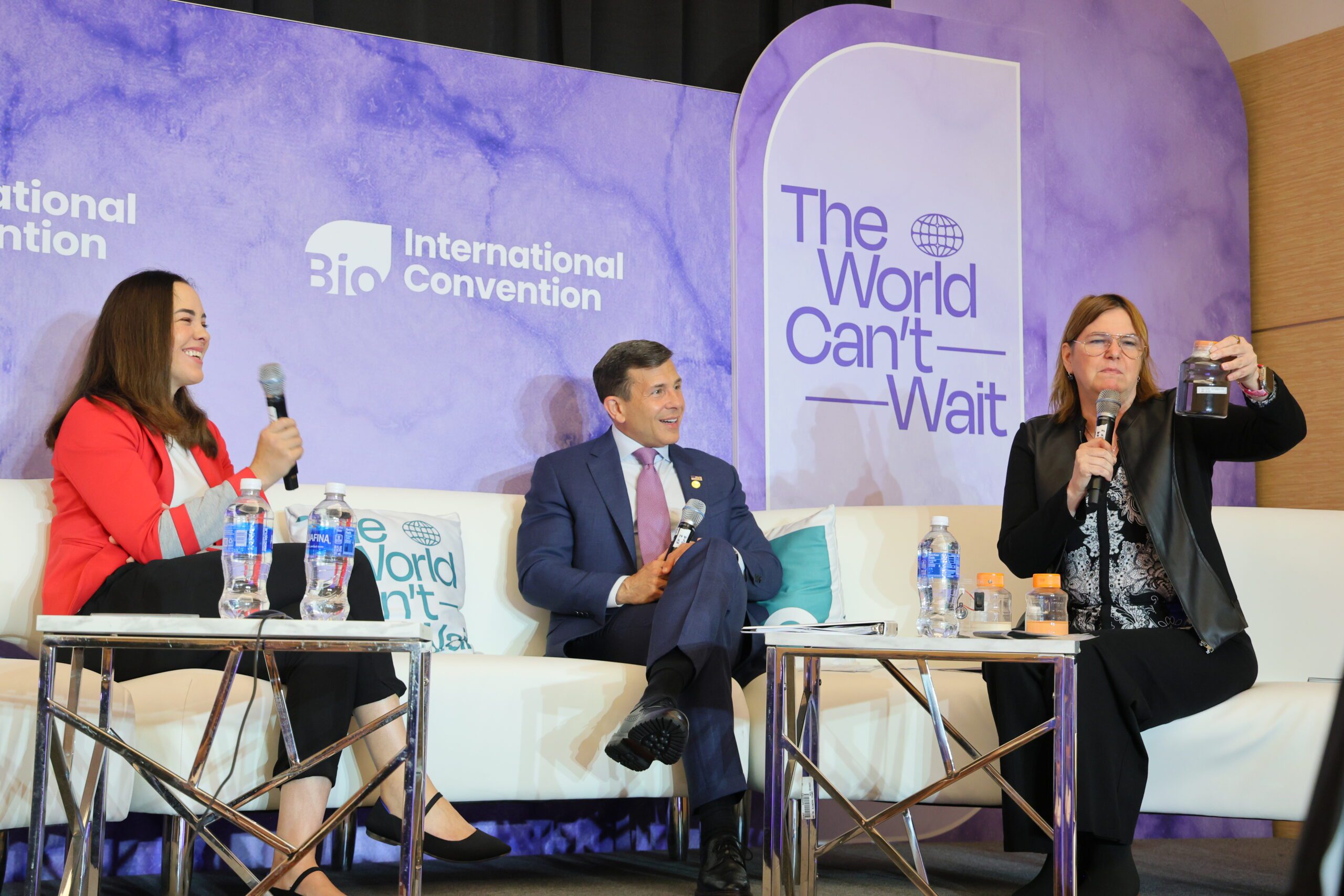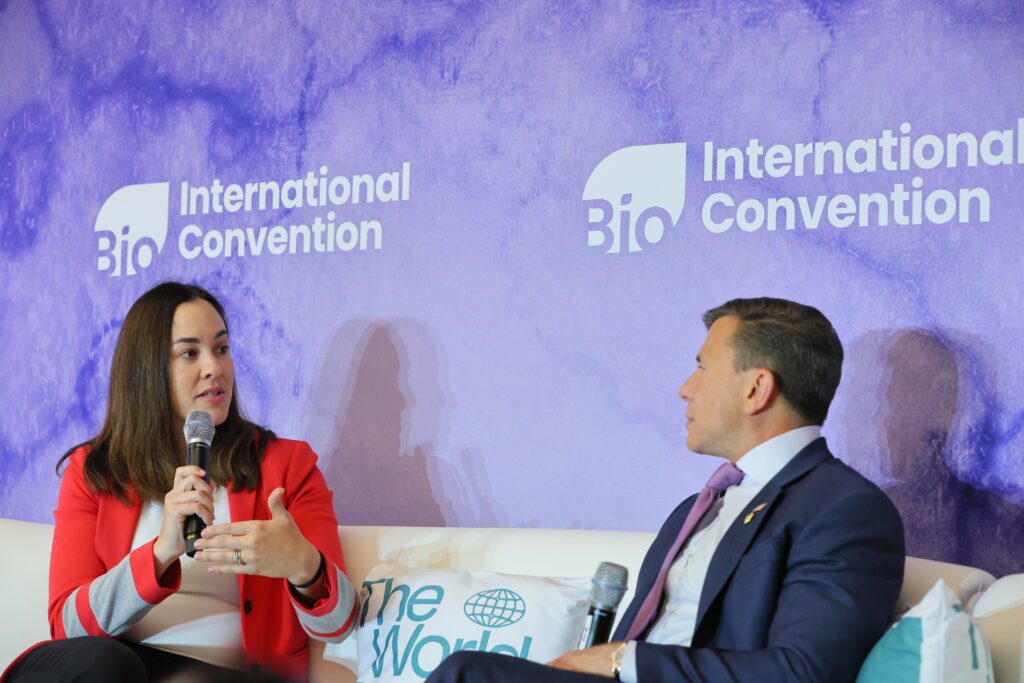The threat to America’s leadership in biotech is a threat to our national security that we need to address now, two members of a congressional commission said at the 2025 BIO International Convention in Boston.
The experts on the National Security Commission on Emerging Biotechnology (NSCEB) discussed their report and their efforts with Biotechnology Innovation Organization (BIO) President & CEO John F. Crowley on June 18.
“There is time to act but no time to wait,” said Michelle Rozo, NSCEB Vice Chair. “The United States needs to remain in the lead in biotech.”
Established with bipartisan support as part of the 2022 defense budget, the NSCEB was tasked by Congress to conduct “a comprehensive review of emerging biotechnology’s impact on national security and provide practical recommendations to preserve American dominance in this field.”
The report concluded that the U.S. needs coordinated action involving government, industry, and academia to maintain its world leadership in biotechnology in the face of competition from China. The concerns are more than economic ones, as biotechnology is key to our security, noted Crowley.
“It’s not just for Americans; it’s for everybody in the world,” he told the panel. “The world is a safer, better, healthier, and more prosperous place when we lead in biotechnology, and we are the leader in capabilities and capacity.”
The NSCEB report finds that China has made biotechnology a strategic priority, something the U.S. failed to do. China has developed a sophisticated capacity for not only manufacturing drugs but also discovering new ones, Rozo said.
“This is not about where medicines are made,” she explained. “This is about who controls the intellectual property, the infrastructure, the supply chains, the innovation that is really going to shape the world in the 21st century.”
Michelle Rozo, Vice Chair of the National Security Commission on Emerging Biotechnology (NSCEB) at BIO 2025 in Boston
What biotech can do for national security
Maintaining biotech superiority is important to security and public health because it ensures Americans have access to the best treatments. As Rozo noted, that requires a strong U.S. supply chain, enhanced by domestic production.
Biotech superiority also ensures the U.S. will have solutions for threats such as pandemics of bioweapons, and will have the ability to protect and treat members of the military.
For example, researchers are seeking ways to make blood supplies more accessible during “the golden hour—the time right after a traumatic event when access to blood saves lives,” Rozo said. “Blood can be hard to come by in the theater where our warfighters deploy or in rural parts of America, so the Department of Defense (DoD) is working on shelf-stable blood.”
One solution is “a bag that looks kind of like an IV with a freeze-dried part made of the components of blood. You can crack this bag like a glow stick and thereby turn the golden hour into a golden day. This could revolutionize the way that we treat our warfighters but also provide care to people all across America.”
Many other biotech innovations being developed for the DoD have commercial applications, according to panelist Angela Belcher, a scientist and member of the NSCEB. Projects with commercial potential not only benefit society; they will also remain available when not supported with DoD funds, she said.
Examples Belcher showed the audience included a battery biomanufactured from non-toxic ingredients and a hard tile material strong enough to build bridges that can be produced biologically, meaning the production can be set up anywhere easily.
Another success story from DoD development is a carbon-based material produced with bacteria that can neutralize chemical warfare agents. Now there may be commercial applications for increasing the capacity of oxygen tanks, soaking up forever chemicals, and enabling cleaner mining.

What’s next
The NSCEB report calls for the U.S. to use a government-industry partnership to strengthen our biotech ecosystem. The partnership envisioned would be a strategic effort involving a wide range of government and private actors coordinated by one government body.
The report says the initiative should give the same level of importance that China is giving to biotech development, but also lean into America’s strength of building innovation through the market. According to Rozo, the NSCEB report calls for stimulating the private sector with a $15 billion government investment.
As Crowley noted, the report has 49 specific recommendations for how to achieve this. The NSCEB’s mandate is to continue working with Congress and the administration for the next 18 months to establish the necessary legislation and policies to get the job done.
“We are hard at work in Congress. We’ve engaged with over 200 member offices at the individual level as well as the 19 committees that our recommendations touch,” Rozo said. “We’ve laid out an action plan and our road map to make that happen, and now we need to act on that.”




